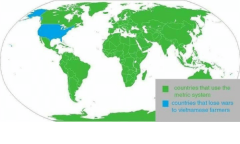
I don’t really like Esperanto. As a language. As an idea I love it from all my heart! ❤️ That message of unity, peace and understanding though a common language! That brilliance of simplification and unification!
But I’ve always seen it advertised as “extremely simple”. Simple indeed, but extremely? You can certainly do better!
Alphabet
Esperanto has five characters that annoy me way more than they should:
ĉ ĝ ĥ ĵ ŝ
It might have looked like a good idea to add those neat diacritics back in the times when you mostly wrote by hand. But in the age of computers having any non-latin characters in your alphabet is just annoying – with all the switching of keyboard layouts, with those damn non-UTF8 encodings, with some people replacing ĉ with the ugly cx and others with ch...
And also: who really cares about the difference between h and ĥ?
Nouns
They aren’t in any way better or simpler than in natural languages. Such a missed opportunity! Especially for the words used so often. Just look:
| singular | plural | ||
|---|---|---|---|
| 1st person | mi | ni | |
| 2nd person | vi | ||
| 3rd person | masculine | li | ili |
| feminine | ŝi | ||
| neuter/epicene | ĝi | ||
| indefinite | oni | ||
| reflexive | si | ||
Although they describe people and things (=substantives) they have nothing to do with the substantive -o suffix. And the plural doesn’t seem to stem from the singular at all.
Apparently, it’s necessary to distinguish between three 3rd persons, depending on their gender (as if someone’s gender was relevant at all in most of the contexts...), but only as long as it’s one person. And for the 2nd person even the singular/plural distinction stops being relevant, for some reason.
Sexism
There is an -ino suffix for substantives that indicates femininity of a person. Which implies in a way, that all the human-describing substantives are male by default, and it takes a special effort to express such a rarity as a woman...
Accusative
They say it’s nice to have at least those two cases (Nominative and Accusative) in order to distinguish between phrases like “Peter killed the lion” and “The lion killed Peter”. Except, you know... I just did it – in English, which has (almost) no cases anymore. You can easily tell, who killed whom. The word order is the key. And if you really want to start with the object, not the subject, (say, for emphasis), just use the passive voice: “The lion was killed by Peter”.
Even in Polish, which has seven grammatical cases and not that strict rules regarding word order, messing up with this order can result in strange sounding sentences. Cases aren’t really as useful as they seem to be.
An why would you even want so highly flexible word order anyway? It might be fun for shorter, simpler sentences, but the more complex ones would become incomprehensible, regardless of the number of hints that are given by cases.
Definite article
I never really got that concept. Why does it matter so much, if I’m talking about something new and indefinite or something known and specific? Most of the time it’s really obvious from the context, isn’t it? And when it’s not, we can just add “some” or “this”. Which is exactly the way that Polish does it. And it works just fine.
Plural adjectives
A “cute guy” is “beleta ulo”. To make it plural, we can’t just pluralify the substantive: “beleta uloj” makes no sense in Esperanto. Only “beletaj uloj” does. Cause, you know, nothing says “simplicity” like duplicating the same information twice.
Adverbs
German does just fine with adjectives simply acting as adverbs, depending on whether they describe a substantive or a verb, whereas Esperanto necessarily needs to distinguish them. You know, for simplicity’s sake.
Numerals
Positional notation is awesome! Way simpler than Roman numerals or other systems that humankind came up with in the past. A digit can have a different value depending on its position in a number. Brilliant!
When writing a number down, digits (grouped by three[1] for convenience) and their positions are basically all we need to accurately represent it. But when saying a number out loud, in most languages we have to additionally emphasise the positions with verbal indicators: thirteen, twenty, five hundred and so on. We end up with oral system not really being consistent with the written one.
Sure, the numerals in Esperanto are already way simpler than in most natural languages, more consistent and lacking in exceptions, but one obviously can do better.
So what?
Not much. I just wanted to say that Esperanto disappointed me a bit. I really wanted to learn it (back when I was maybe 15?). But in the process I realised that it’s just not as much fun as I expected. Its sound isn’t really to my taste, it’s grammar isn’t such a piece of cake as everybody advertised it to me, it’s not a magical “free” language that just slips into your mind as you go. I do understand it quite well, without trying that much, but I wouldn’t say I have any considerable motivation to actually learn it.
Because, let’s not kid ourselves, Esperanto isn’t that useful either... It has way fewer speakers, way smaller influence and significance than it deserves to have. (Yeah, I might not like it, but I do admire its achievements and wish it the best!). There is some practical purpose in learning Esperanto, but way to little to keep me interested.
What I do enjoy, however, is creating my own conlangs. Not as a competition with Esperanto, not with any aspirations for a world auxiliary language... Just because, just for fun. And I’ve recently got back to working on my old project that stems from my adventure with Esperanto.
Keep fingers crossed that I finally finally finish it 😀
[1] or not three, depending on a language

